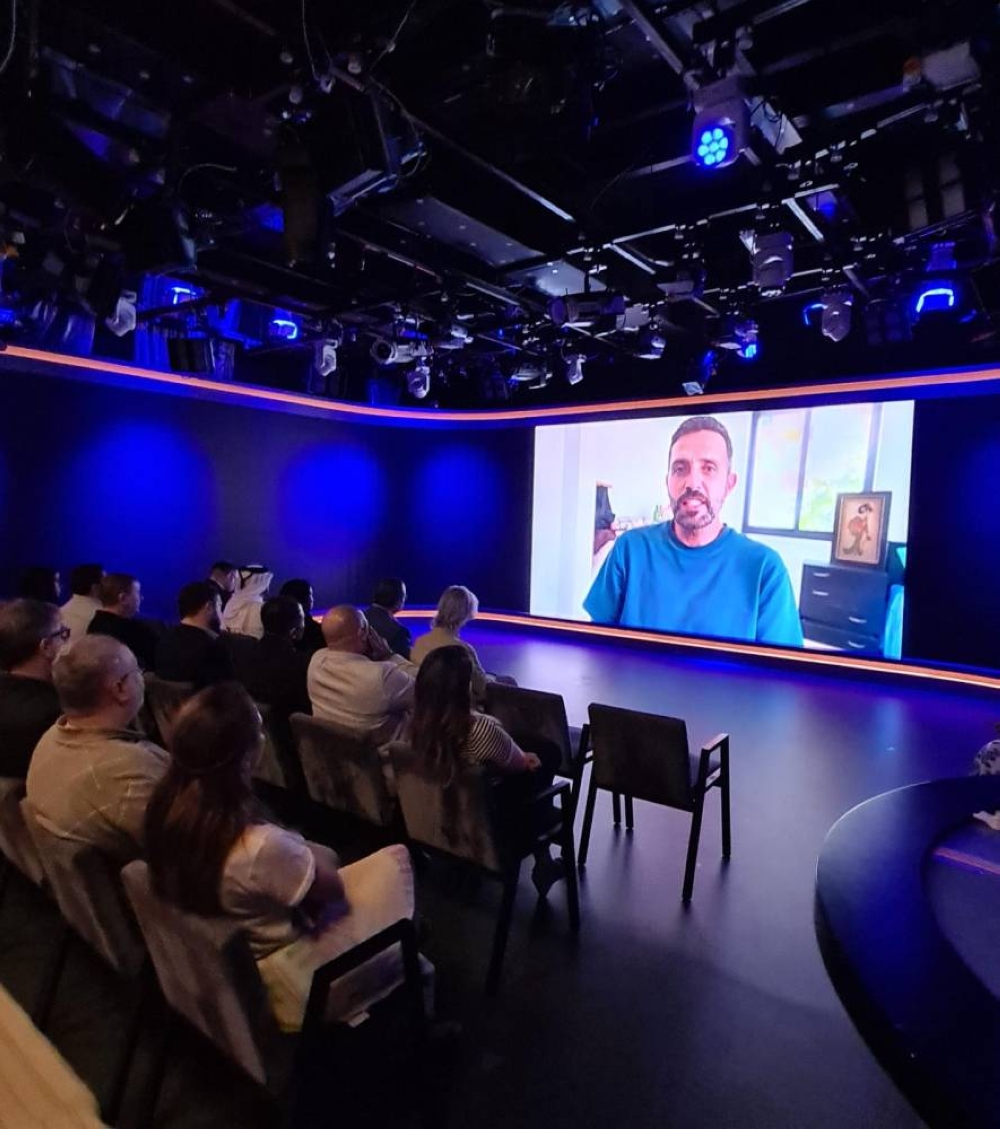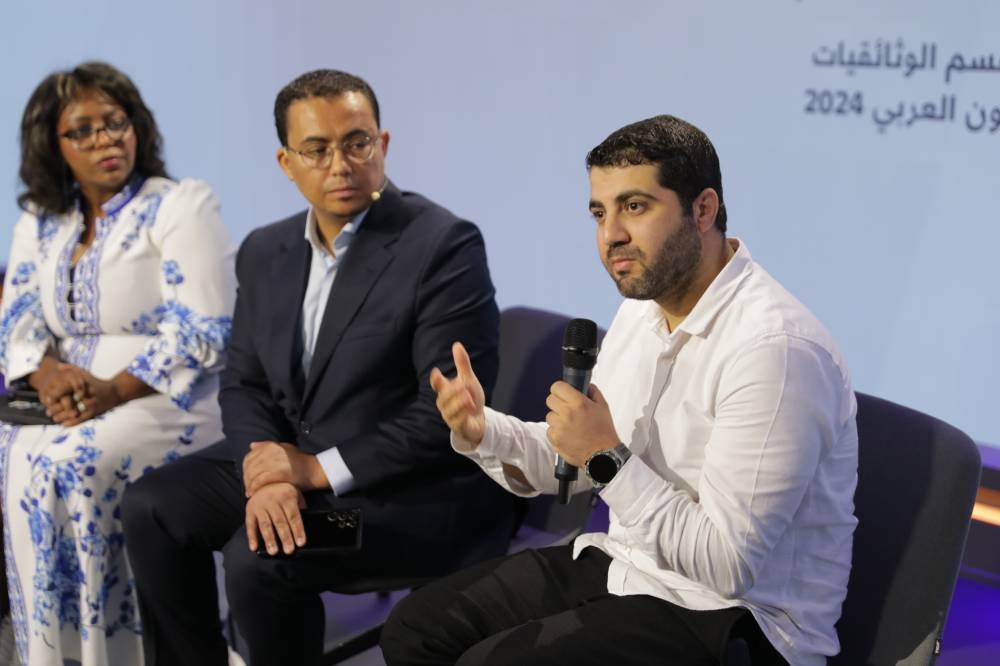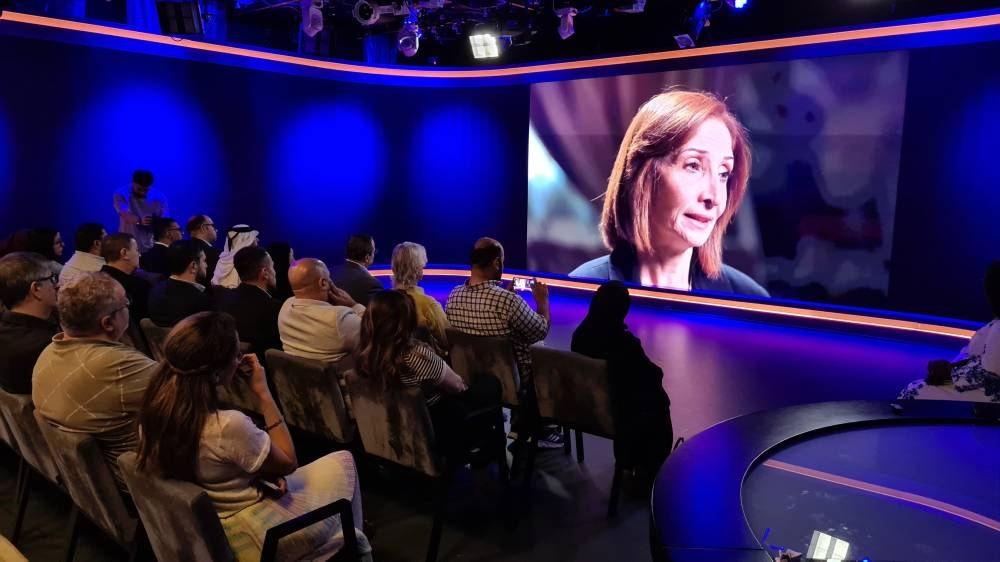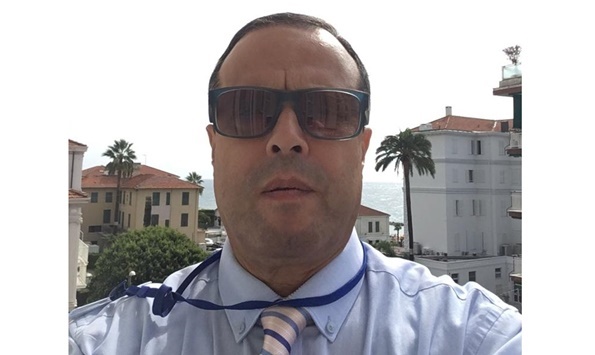The documentary film Laheeb Althalajat (Arabic for Flames of the Morgues) sheds light on a largely overlooked aspect of the sorrow endured by the families of Palestinian martyrs due to the Israeli occupation's retention of their loved ones' bodies. The documentary tells moving stories of families who have been waiting for many years to recover the remains of their children and how this tragic waiting period affects their daily lives.
A special screening of the documentary film Laheeb Althalajat (Flames of the Morgues) recently awarded the Silver Prize at the Arab Radio and Television Festival in its recent edition in Tunisia, took place Tuesday at the headquarters of Alaraby Television. The event was attended by a gathering of journalists and filmmakers.
The film producer, Khaled Doum, emphasized that "the production of this documentary aligns with Alaraby TV's commitment to delivering works of high humanitarian values that contribute to raising awareness of urgent human rights issues. It is an open invitation to the public to understand the reality of the sorrow of the Palestinian people under the occupation, which violates all international covenants."
Director Kamal al-Azraq highlighted that "the timing of the documentary film's release coincides with the Israeli aggression on the Gaza Strip, reminding us of the importance of documenting the systematic crimes committed by the occupation forces. Film-making is one of the tools of resistance, given its ability to rally solidarity and necessary support for the Palestinian cause."
Following the screening, a discussion was held with the film producer, Khaled Doum, and Dina Demerdash, Head of Documentaries at Alaraby TV. They discussed the circumstances of the film's production and the importance of focusing on similar topics. Dina Demerdash noted that "the documentary exposes the various forms of targeting the Palestinian people and the oppressive practices used by the Israeli occupation to break their resolve. The retention of bodies is not just a tool for collective punishment, but also a bargaining chip used by the occupation when needed."
According to those who did research for the documentary, before October 7, the number of bodies held by the occupation was estimated at 500 bodies, and during the raging violence for the tenth month now, this figures is likely to have doubled.
The film is due to be broadcast soon, with an initial screening on Alaraby TV, and on its digital platforms, while the Head of Documentaries, during the debate, welcomed the idea of dubbing the documentary in English for a wider audience.
Qatar
Silver Award documentary “Flames of the Morgues” screening at Alaraby TV
Palestinian martyrs’ bodies held by Israel cause deep sorrow to their families




